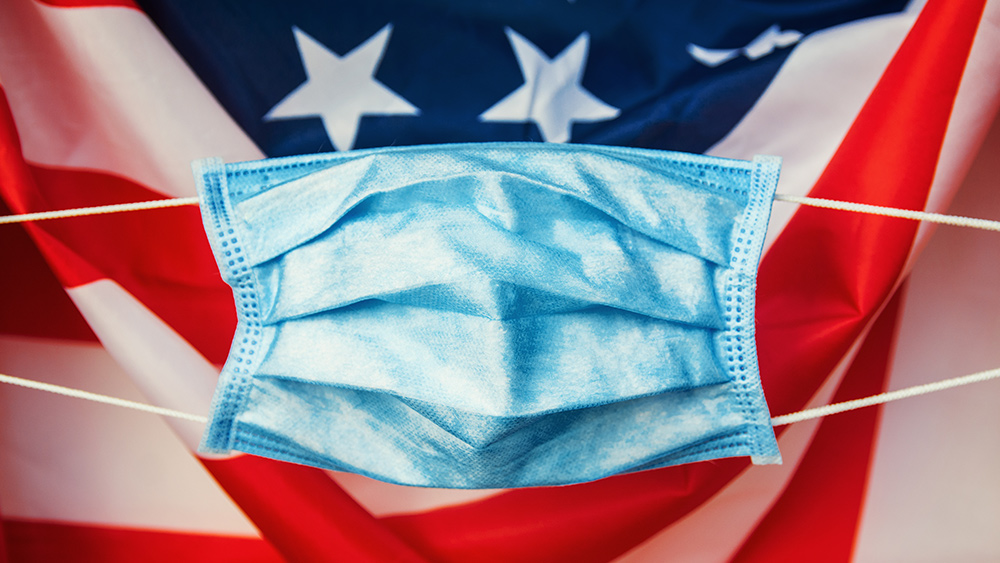Governments around the world widen global wealth gap during coronavirus pandemic
06/25/2021 / By Nolan Barton

Economic policies enacted by governments around the world in response to the Wuhan coronavirus (COVID-19) pandemic are widening the gap between the wealthy and the poor.
The annual Credit Suisse Global Wealth Report shows that dollar millionaires now account for more than 1 percent of the global population for the first time in history. According to the report, there are 56.1 million individuals with assets worth more than $1 million in 2020.
That’s an increase of 5.2 million from 2019, showing how emergency interest rate cuts and government stimulus measures benefit those least in need of state support and help their assets grow in value despite the economic downturn.
“The rise in wealth inequality was likely not caused by the pandemic itself or its direct economic impacts, but was instead a consequence of actions undertaken to mitigate its impact, primarily lower interest rates,” the report’s authors said.
In other words, the actions to offset the effects of the pandemic contributed to a sizeable increase in wealth inequality. (Related: Pandemic widens gap between rich and poor, analysis shows.)
Rich countries produce more rich people during pandemic
The U.S. accounted for nearly a third of the world’s 5.2 million new millionaires last year, adding 1.7 million to the country’s total that now stands at 22 million. Germany followed by adding another 633,000 millionaires. The UK ranked sixth with 258,000 new millionaires, pushing its total to 2.5 million individuals with assets worth more than $1 million.
Another 41,420 also joined the group of individuals with assets worth more than $50 million. That represented a 24 percent jump from 2019 – the largest annual growth rate in 17 years. There are now 215,030 individuals with assets worth more than $50 million.
Contrasting fortunes at the top and the bottom were highlighted in the report, as those already on lower earnings suffered job losses and a drop in income.
The report explained that the impact of the pandemic on household wealth was worst in countries where governments failed to compensate for lost wages during the enforced economic shutdowns. In high-income countries, emergency benefits helped soften the blow of job cuts or lower business income.
Those unable to access emergency support were harder hit and forced to draw down their savings or take on higher debt. The impact was particularly acute for vulnerable groups, including minorities, young people and women.
Anthony Shorrocks, an economist at the University of Manchester and one of the Credit Suisse report’s authors, said that climbing asset prices did not reflect the challenges that most of the world felt during the pandemic.
“There’s a sort of disconnect between what’s been happening to the wider economies – which have been in serious trouble and required a lot of government intervention – and what’s happened to household wealth, which seems to have just continued as if nothing has been happening,” he said.
In total, global wealth grew by 7.4 percent in 2020 to $418.3 trillion in 2020, with gains largely attributed to growth in the U.S., Europe and China, while overall wealth in Latin America and India declined.
Global wealth is expected to rise a further 39 percent over the next five years to reach $583 trillion by 2025, while the number of millionaires is forecast to jump by nearly 50 percent to 84 million individuals. The group with more than $50 million worth of assets is also expected to expand by nearly 60 percent to reach 344,000 people.
Big Pharma executives join ranks of billionaires during pandemic
A separate report from the People’s Vaccine Alliance revealed that nine individuals from the pharmaceutical industry have joined the ranks of billionaires during the pandemic.
Moderna CEO Stephane Bancel topped the list and is now worth $4.3 billion as his company became the second to be granted emergency use authorization in the U.S. for its COVID-19 vaccine in December last year. (Related: One-third of all American billionaires’ wealth gains over the last 30 years came during the pandemic.)
CEO and co-founder of BioNTech Ugur Sahin is not far behind with a wealth of $4 billion, following his company’s collaboration on a vaccine with Pfizer.
Other Moderna executives have also profited, with immunologist and early investor Timothy Springer now worth $2.2 billion, Chairman Noubar Afeyan $1.9 billion and scientist and founding investor Robert Langer $1.6 billion.
Senior executives from CanSino Biologics have also become billionaires during the pandemic, with the Chinese firm’s co-founder and Chief Scientific Officer Zhu Tao now worth $1.3 billion, co-founder and Senior Vice President Qiu Dongxu $1.2 billion and co-founder and Senior Vice President Mao Huinhoa $1 billion.
CanSino has developed a one-shot vaccine that was approved for use in China earlier this year.
ROVI Chairman Juan Lopez-Belmonte also made the list with $1.8 billion. Spanish contract drugmaker Rovi makes bottles for Moderna’s vaccine and has reached a new deal to start making the vaccine’s active ingredients.
Follow Pandemic.news for more news related to the coronavirus pandemic.
Sources include:
Tagged Under: bad medicine, Big Pharma, coronavirus, covid-19, Credit Suisse, economic downturn, global wealth, global wealth report, household wealth, interest rates, job losses, pandemic, Pharmaceutical industry, vulnerable groups
RECENT NEWS & ARTICLES
COPYRIGHT © 2017 BIG PHARMA NEWS





















